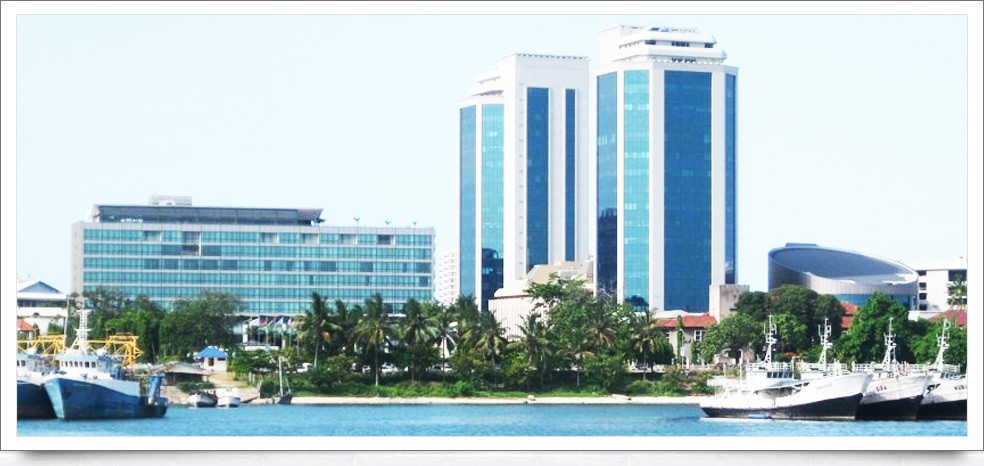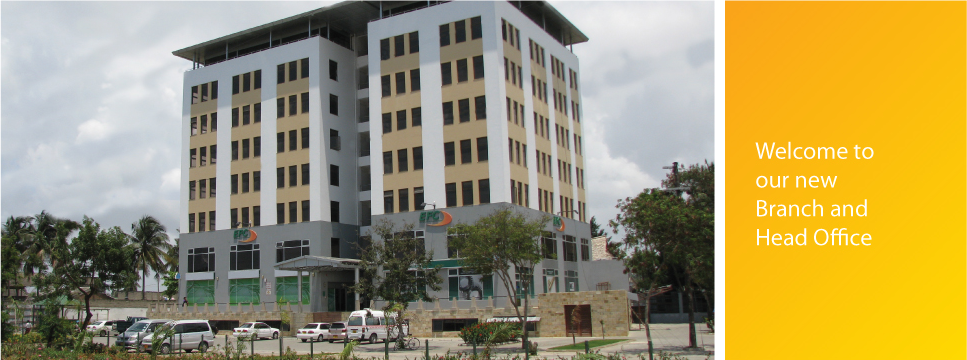Bank of Tanzania Financial Markets Financial Markets in Tanzania
Post on: 12 Май, 2015 No Comment

Financial Markets in Tanzania
Financial markets in Tanzania consist of markets for money, bonds, equities, foreign exchange, and collective investment schemes. The Bank of Tanzania is involved in money, bonds and foreign exchange markets geared towards implementation of monetary policy, ensuring that government financing needs are met and facilitating stability and efficiency of the markets. Domestic financial markets are comparatively still at a nascent stage.
Major Milestones in Financial Markets in Tanzania
- March 1992: The Foreign Exchange Act 1992 was enacted. The Act liberalized the external trade and created enabling environment for market determined exchange rates.
- April 1993: Inception of the Bureau de Change as an effort towards foreign exchange liberalization.
- June 1993: The bank of Tanzania issued Certificates of Deposit as an instrument of monetary policy.
- July 1993: BOT began auctioning of foreign exchange as a tool for liquidity management as well as for determination of market-based exchange rate.
- August 1993: The Bank of Tanzania introduced Treasury Bills Auctions, as a tool for financing short term government deficit, an instrument for liquidity management, and as a reference point for the determination of market interest rates. The Auctions began with the 91–day Treasury bill.
- September 1993: 35-day Treasury bill was introduced.
- January 1994: The Capital Market and Securities Act was enacted.
- February 1994: 182-day Treasury bill was introduced in the market.
- In June 1994, the Interbank Foreign Exchange Market was introduced, replacing the weekly foreign exchange auction system. The IFEM, which is a wholesale market, facilitated determination of the exchange rate.
- In 1994 a fully-fledged Directorate of Financial Markets was established in the Bank to develop and supervise the functioning of the markets.
- December 7th 1994: The 35-day Treasury bill was discontinued from Treasury bill market.
- December 1994: The 364-day Treasury bill was introduced in the market.
- 1996: the Capital Markets and Securities Authority was established in order to facilitate establishment of stock exchange for mobilizing and allocating savings for medium and long-term investments.
- July 1997: Repurchase agreements were introduced to complement Treasury bills and bonds in the conduct of open market operations.
- September 1996: The Dar es Salaam Stock Exchange was incorporated as a private company limited by guarantee and not having a share capital under the Companies Ordinance.
- April 1998: Trading activities at the Dar-es-Salaam Stock Exchange commenced after two years of preparatory work under the stewardship of the Government through the Capital Markets and Securities Authority. The opening of the Trading Floor coincided with the listing of TOL Limited (formerly Tanzania Oxygen Limited), as the first company on the Exchange.
- July 1999: The Bank of Tanzania introduced a computerized book entry system and a Central Depository System for Treasury bills. The system entails record keeping, transfer and updating ownership of Treasury bills without having to issue physical certificates, thus improving efficiency. The system also facilitates divisibility of securities into smaller lots, which promotes secondary market trading.
- February 2002: The Bank of Tanzania on behalf of the Government launched a 5-year Treasury bond with a fixed coupon rate of 7.5 percent. The bond is listed at the Dar es Salaam Stock Exchange. The aim was to extend the maturity profile of government debt, lengthen the yield curve, and increase the number of tradable instruments in the market.
- April 2002: The Bank of Tanzania changed the 2-year Treasury bond auctions from uniform prices to multiple prices.
- May 2002: The Bank of Tanzania re-introduced the 35-day Treasury bill as an instrument of monetary policy.
- July 2002: The Bank of Tanzania on behalf of the Government launched a 7-year Treasury bond with a fixed coupon rate of 7.75 percent.
- July 2002: The Bank of Tanzania established an Export Credit Guarantee Scheme (ECGS) to hasten the provision of credit to the export sector, notably non-traditional exports in order to augment efforts towards increased export earnings.
- August 2002: The Bank of Tanzania on behalf of the Government launched a 10-year Treasury bond with a fixed coupon rate of 7.75 percent.
- May 2003: The Government opened up the Dar es Salaam Stock Exchange to foreign investors. Several regulations were published in 2003 to guide foreign investors dealings in the Stock Exchange and establish regulatory safeguards for orderly stable market activities.
- December 2003: The Bank introduced Intraday and Lombard standby credit facilities to provide overnight-collateralized loans to commercial banks.
- March 2004: Financial Markets Leaders Forum was established in order to promote dialogue and networking among stakeholders in the financial markets. Structured and informal knowledge sharing facilitated by the Forum has enhanced comprehension of the market intricacies among market participants.
- January 2008: The auction frequency of Treasury bills was changed from weekly to once fortnightly whist that of Treasury bonds was changed to once every month.
- January 2008: Harmonization of redemption and settlement of Government securities to T+1.
- Harmonization of Redemption and settlements to T+1.

The Money Market
Money market comprises of dealing in the Treasury bills, Repurchase Agreements (REPOS), Interbank Cash Market (IBCM) and Interbank Foreign Exchange Market (IFEM).
The Treasury bills market is dominated by commercial banks and participation is limited to residents. The tenure of Treasury bills are 35, 91, 182, and 364 days, which are issued in the primary market once fortnightly and settlement is done on the next day, and secondary market trading is done over the counter.
Repurchase Agreements (REPOS) involve the sale of securities with an agreement to repurchase the securities at a future date, and at an agreed price. They were introduced to manage intra-auction liquidity variations. At the moment repo transactions are conducted between the Bank and commercial banks. Tenure for Repos ranges between 2 days maturity to 14 days maturity.
Interbank cash market provides opportunity for lending and borrowing amongst commercial banks. It is a key segment in the money market where banks trade their positions to manage their liquidity imbalances.
Interbank foreign exchange market
Foreign exchange transactions in Tanzania are done between the Bank and commercial banks and amongst commercial banks (interbank foreign exchange market), banks and their customers, including bureaus de change. However, large volumes of foreign exchange transactions take place in the IFEM. The exchange rate used is market determined and the mean official exchange rate serves as a reference rate.
The IFEM plays an important role in the determination of the official exchange rate and monetary policy implementation. The number of participating commercial banks in this market currently stands at 32, out of which, 18 transact through Reuters Dealing System. The price mechanism is a two way-quote system, where each bank posts its bid/ask prices, good for US dollar 100,000.00.
The main objectives of the IFEM are:
a) To allow banks and other authorised dealers to play an active role in developing markets and instruments to serve their customers;
b) To increase the efficiency in the allocation of foreign exchange reserves, thereby facilitating market-determined exchange rates;
c) to create a favourable environment for foreign investment, which would, ultimately, pave the way to full liberalisation of the capital account; and
d) To improve the conduct of monetary policy
The Capital Market
This is where financial instruments for raising capital are traded. Instruments like stocks and bonds are traded in this market.
Treasury Bonds
The Treasury bonds market has four maturities of 2, 5, 7 and 10 years that are issued in the primary market by the Bank on behalf of the Government and are dominated by pension funds. The auction is held once every month. The bonds are listed at the Dar es Salaam Stock Exchange (DSE). Secondary market trading of government bonds has not been vibrant.
Corporate Bonds
Six corporate bonds have been issued and listed at DSE. These are EADB (bond worth TZS 15.0 billion), PTA Bank (TZS 15.0 billion), Barclays Bank Tanzania Ltd (TZS 10.0 billion), Standard Chartered Bank Tanzania Ltd (TZS 8.0 billion), BIDCO Oil, and Soap Co. Ltd.
Equity Market
The equity market is currently consisting of thirteen companies listed at DSE. Participation of non-residents in IPO is limited to 60 percent of the shares. The listed companies are TOL Gases Ltd, Tanzania Breweries Ltd, Tanzania Tea Packers Ltd, Tanzania Cigarette Company, Tanga Cement Company Ltd, Swissport Tanzania Ltd, Tanzania Portland Cement Ltd, Kenya Airways Ltd (cross-listed), East Africa Breweries Ltd (cross-listed), Jubilee Holdings Ltd (cross-listed), Dar es salaam Community Bank (DCB), NICOL and National Microfinance Bank (NMB) which is the first bank to be registered on the DSE.
Collective Investment Schemes
These schemes gives an opportunity for the majority of Tanzanian citizens to invest, take a stake in privatization, further participate in the capital markets and obtain a return on their investments. Moreover, they are structured to provide opportunities to both low and high income Tanzanian individuals as well as registered based organisations whose beneficiaries are Tanzanians to participate in it. These are Umoja Fund, TCCIA Investment Company, and National Investment Company (NICOL). Click here to view markets trends














